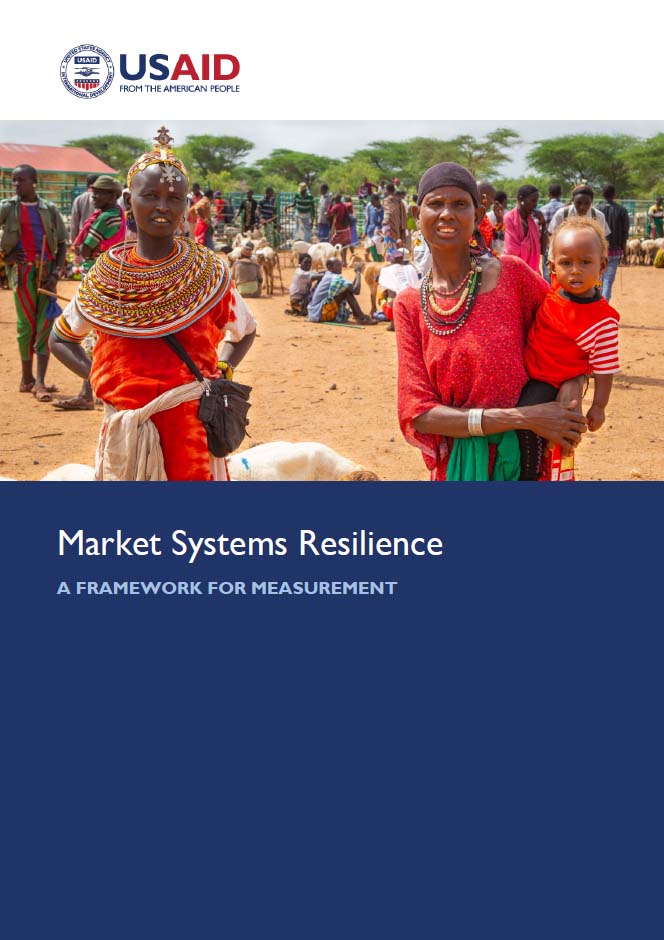Speeches Shim
Market systems resilience is a relatively unexplored area in development. While it builds on market development, it addresses the capacity of a market system to absorb, adapt, or transform in the face of shocks and stresses. Within the broader economic, political, socio-cultural, and environmental systems in which they operate, markets are a means of allocating resources to solving system problems, such as those related to shocks and stresses. In other words, markets are an integral part of the ecosystem that resilience programming has long focused on.
This paper focuses on resilience at the systems level. USAID has defined resilience at various levels, including the individual, household, community, and systems level; however, systems-level resilience has yet to be fully defined. Defining markets as complex adaptive systems (CAS)1, this paper explores systems-level resilience, drawing from a body of research on systems thinking,2 and institutional, behavioral, and evolutionary economics.3 It explores an approach to strengthening market-systems-resilience capacities based on the assumption that systems are dynamic, thus what is needed is an understanding of how to facilitate the direction of market system change away from what is defined as reactive and toward proactive structural and behavioral characteristics. This paper defines resilience along a continuum of structural and/or behavioral characteristics, which at the reactive end inhibit market systems from being able to absorb, adapt, or transform in the face of shocks and stresses. At the proactive end of the resilience continuum, structural and behavioral characteristics enable market systems to adapt and transform toward a greater capacity for resilience. Market systems resilience is defined more broadly as the ability of the system to draw on system-level resources—such as social safety nets, early-warning systems, emergency relief systems—in the face of shocks and stresses.
This paper begins by examining markets as complex adaptive systems to better understand—at the system level as opposed to the individual, household, community or even enterprise level—how market systems respond to shocks and stresses. With this understanding, the characteristics of market systems resilience are explored and a theory of change for how to strengthen market system resilience capacities is proposed. This paper ends with a tool for assessing market system resilience.
Finally, this paper is exploratory; an early stage of what will be a longer process of testing and ground truthing of the characteristics of market systems resilience, the theory of change, and the assessment tool. Moreover, although the paper draws from academic research, it is aimed at development and humanitarian-assistance practitioners and designed to be used by field practitioners, who can over time verify and refine the theory of change and approach.


Comment
Make a general inquiry or suggest an improvement.